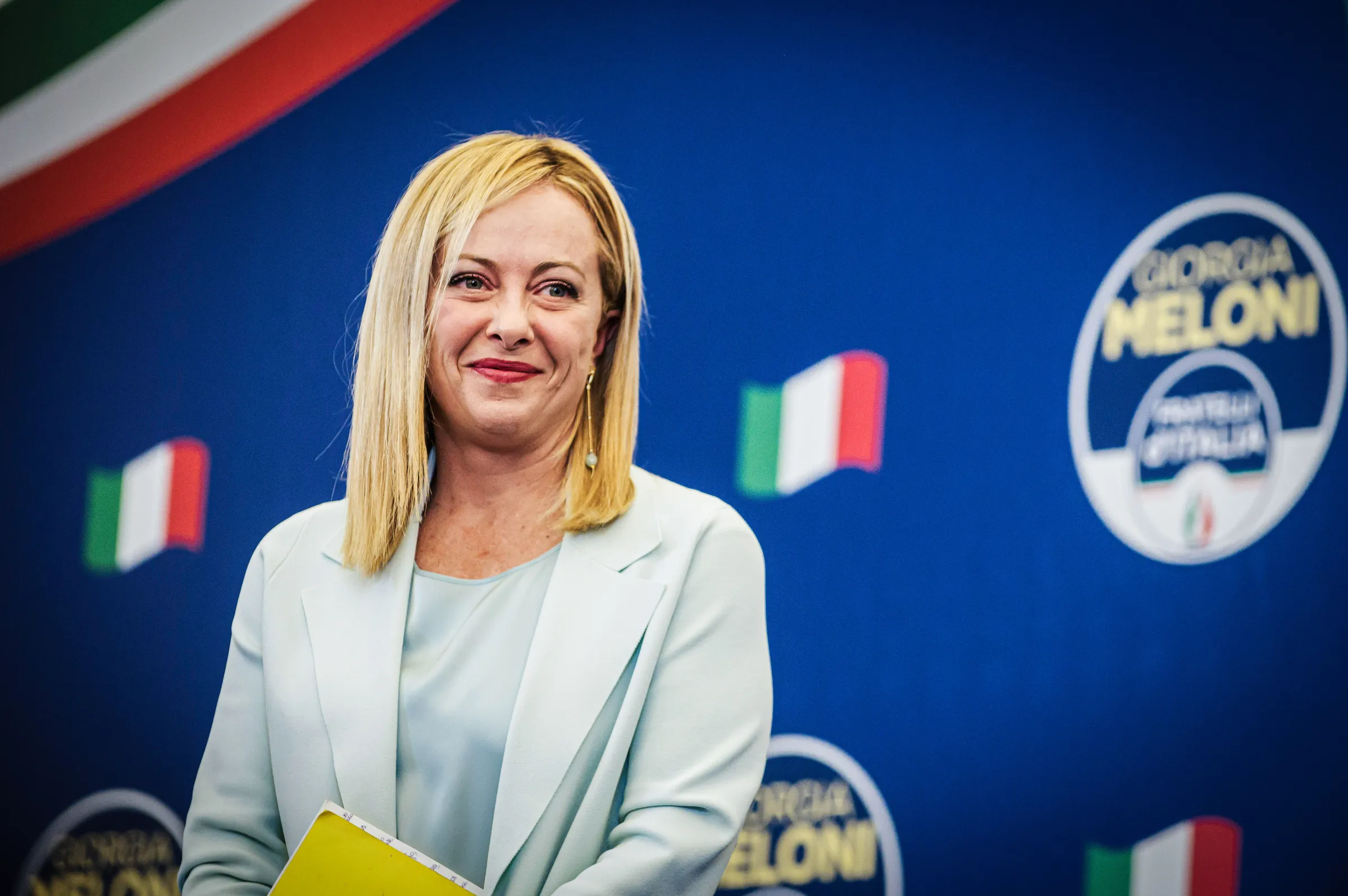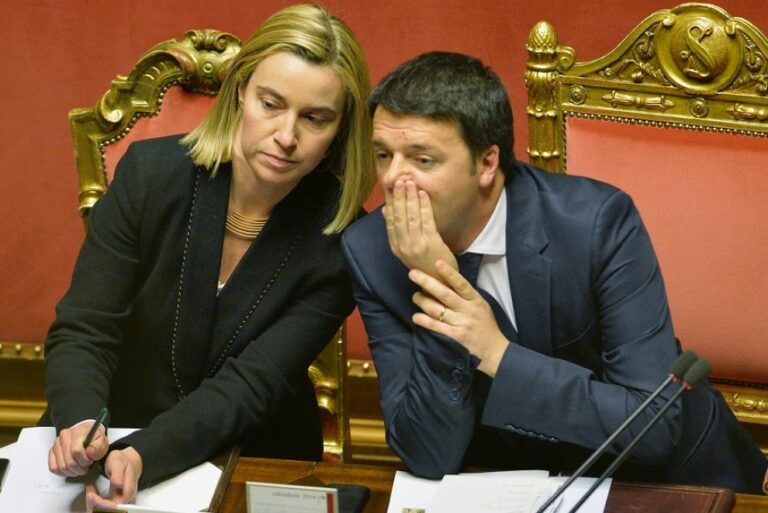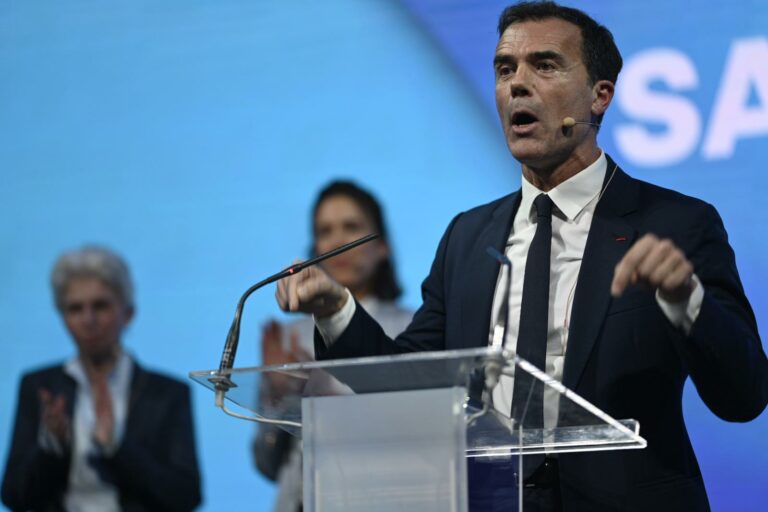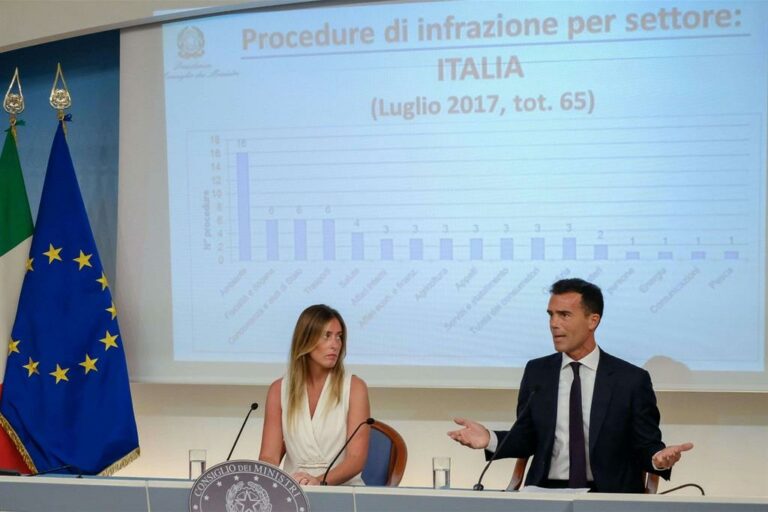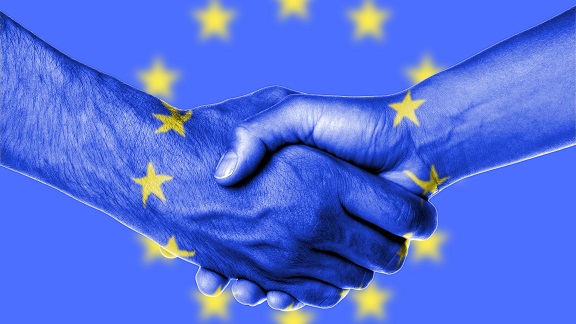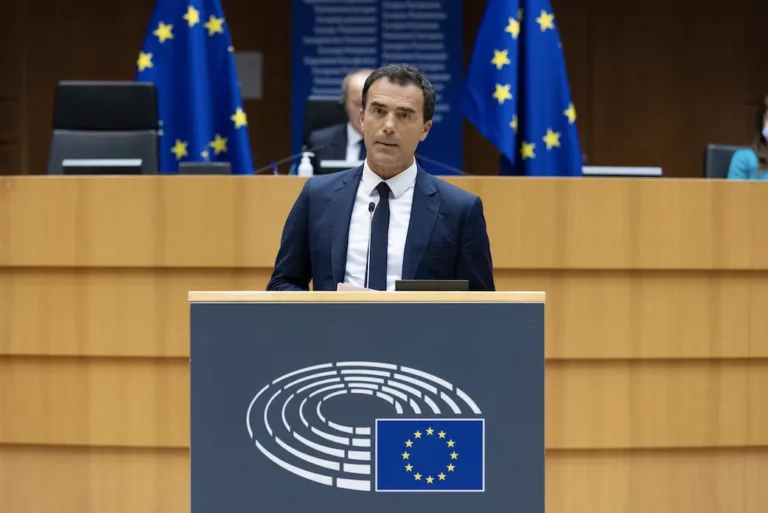Sandro Gozi: “Giorgia Meloni is desperately looking for new alibis to cover up her incompetence”
Intervention in Le Monde, 5 October 2023
Let’s face reality and stop talking about Italy’s Prime Minister Giorgia Meloni for what we want her to be, but for what she really is. About a year ago, she and her government took the reins of Italy with the slogan “We are ready”, claiming to be a new force ready to transform the country. Unfortunately, this rhetoric quickly became divorced from reality.
Giorgia Meloni now finds herself in a precarious position, desperately seeking new alibis to cover up her growing incompetence and lack of coherence. Together with her main ally, Matteo Salvini, leader of the far-right League party, they seem to have adopted a strategy of denunciation, stigmatisation and making excuses at all costs. The recent mass arrival of migrants in Lampedusa shows that they are trapped by their propaganda and contradictions.
During the Italian elections, she promised a naval blockade to stop the smugglers, asserting the nation’s independence from Europe. But since she came to power, the number of irregular migrant arrivals in Italy has risen dramatically, from 105,129 in 2022 to 133,617 in the first nine months of 2023, according to the Italian Interior Ministry.
Nationalist divisions
She is now calling for European solidarity, but her own Polish and Hungarian allies have so far blocked any European solution. They don’t take the time to look for common strategies; on the other hand, in Budapest, alongside Hungarian Prime Minister Viktor Orban, a leader who has long opposed a European strategy on the migration crisis, they have had enough time to proclaim themselves defenders of God and the family (traditionally, of course!).
Let’s hope it’s not without his blessing. Moreover, Poland is reluctant to show solidarity with Italy, while the ruling PiS party is the main ally of the ECR (European Conservative Party), of which Giorgia Meloni is president. A few days ago, the Hungarian and Czech governments once again refused to negotiate a regulation to “manage the migration crisis”.
The political contradictions are clear. So far, Giorgia Meloni has been the ally of her real enemies and the opponent of her potential allies. The contradictions she faces are the same as those of the French and European far right. Marine Le Pen and Matteo Salvini criticised European intervention in migration, while Marion Maréchal called for action by the European Union (EU) and Giorgia Meloni supported European solidarity. This situation shows a clear division between nationalists, even within the same government, as is the case in Italy, where Giorgia Meloni and Matteo Salvini hold opposing positions.
In June, Italy backed the new European pact on asylum and migration, aimed at better distributing refugees within the European Union, which will be relaunched under the French EU presidency in 2022. Marine Le Pen and Eric Zemmour, allied with the nationalist governments of Hungary and Poland, criticised the measure, illustrating the inability of nationalists to find common solutions.
Control of public media
The embattled Giorgia Meloni is trying to hide her inefficiency and growing incoherence by easily pointing to scapegoats to divert attention, as she is unable to deliver on her electoral promises.
The intention is to show strength, identity, perseverance and the ability to escape the dictates and “plots” of Europe, migrants, banks, NGOs, LGBTQI+ and multinationals. But this clearly shows weakness rather than strength. We are in a phase of obfuscation, mass distraction and propaganda that could last until the European elections in June 2024.
The stranglehold that the President of the Council has on Italy’s public media is not conducive to a diverse debate. Migration can only be managed through European cooperation, not competition or confrontation. It is essential to use all available levers, such as visas, development aid and trade agreements, to obtain greater cooperation from countries of origin.
This requires concerted action by European countries, especially France, Italy, Germany and Spain, and by European institutions. Giorgia Meloni seems to have recently realised that an agreement between Italy and France is essential for an effective European solution to the migration issue, as demonstrated by her meeting with President Emmanuel Macron in Rome at the end of September.
A small step towards a global deal
The agreement just reached to respond to the migration crisis is a first result. It is encouraging to see that the dialogue was constructive and that a majority was reached, without Poland and Hungary, who once again voted against. This is a very useful small step towards a global agreement.
The meeting of Euro-Mediterranean leaders in Malta at the end of September was an opportunity to reaffirm the need to move forward quickly and together on this issue. The coming weeks will show whether a sense of responsibility will prevail over electioneering, in Rome as elsewhere. It is imperative that the new European Pact on Asylum and Migration, so strongly advocated by France and the European Commission, is finally adopted in agreement with the European Parliament and implemented as soon as possible.
If Europeans give in to the “every man for himself” mentality, the problems will be greater for everyone. But as Europeans, we can regain control by respecting our common values and protecting our common interests.

